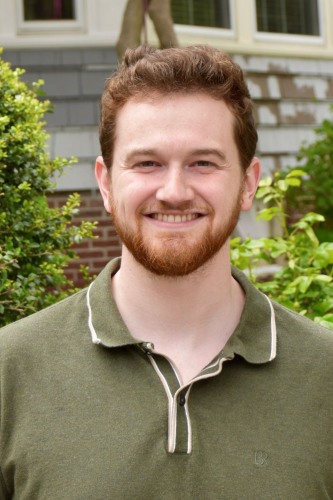
Max Foley-Keene
Biography
Max Foley-Keene is a sixth year doctoral candidate in political theory at Brown University. His dissertation aims to develop a virtue ethic that could enable socialist transformation in the face of catastrophic climate change. Engaging thinkers such as Rosa Luxemburg, W.E.B. DuBois, and Anna Tsing, he develops an account of "eco-socialist civic virtue," encompassing habits, dispositions, and forms of activity that could animate a project wherein human beings democratically decide how they should live with the non-human world. His academic work has been published in Philosophy & Social Criticism, and he has been invited to lecture on his research at the University of Alabama.
A committed instructor, Max is a recipient of the P. Terrence Hopmann Award for Excellence in Teaching. His teaching focuses on environmental political theory, ethics, democratic theory, religion and politics, and the history of political thought. He holds an M.A. in Political Science from Brown University, as well as a B.A. (summa cum laude) in Political Science from the University of Maryland. Max is a frequent contributor to Commonweal magazine, where he has essayed on theology, democratic theory, and the philosophy of competitive sports. He is currently a graduate fellow at the Cogut Institute for the Humanities.
Job Market Paper Title
A green Rosa: Toward a Luxemburgian environmentalism
Job Market Paper Abstract:
In this paper, I develop a theory of eco-virtue for a radical environmental politics by enlisting the work of socialist revolutionary Rosa Luxemburg. Luxemburg’s “socialist civic virtues” highlight the place of virtue in anti-capitalist politics, orients eco-democratic theorists toward the problem of production, highlights the immoderate virtues of struggle necessary for any project of environmental moderation, and models a rhetorical mode for mobilization in disempowered times. I then turn to Luxemburg’s writings on animals and botany, developing two environmental ethics—Luxemburgian sympathy and the Mensch ethic—which facilitate care relationships across species divides and enable revolutionary resilience for radicals in dark times. My reading of Luxemburg presents a politics that joins a commitment to human emancipation with a desire for the flourishing of all organic life.